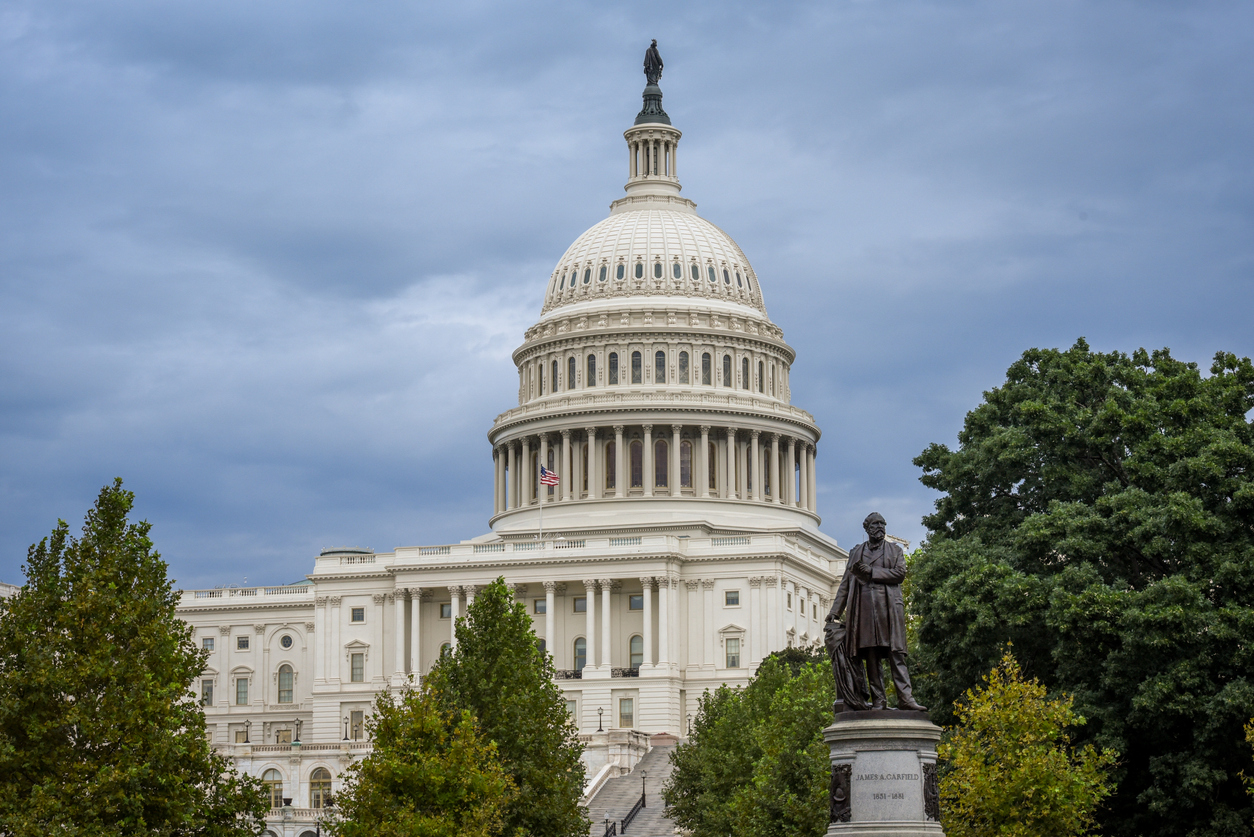IHEP Informs Senator Warren’s Oversight Report on Trump Administration’s Efforts to Dismantle Education Department

Washington, DC (July 17, 2025) – Responses from the Institute for Higher Education Policy (IHEP) informed a new oversight report released today by the Office of Senator Elizabeth Warren (D-MA) regarding the impacts of dismantling the U.S. Department of Education (ED). Education at Risk: Frontline Impacts of Trump’s War on Students investigates, among other topics spanning K-12 through higher education, how the Department’s abrupt cancellation of key federal contracts threatens the collection and dissemination of critical federal education data and research.
IHEP’s responses to Sen. Warren’s request for insights highlight how the education data infrastructure maintained by ED plays a vital role in supporting student success and informing federal, state, and institutional policymaking. Access to accurate and comprehensive data helps students and families make informed decisions, supports researchers in identifying effective practices, and equips policymakers with the evidence needed to craft thoughtful, data-driven solutions.
Read our full responses to Sen. Warren’s questions below. Responses were provided on May 22, 2025.
1. How will researchers and families be affected by any cuts to funding or services, or delays in the provision of funding or services, caused by the dismantling of ED?
Any efforts to dismantle the U.S. Department of Education (ED) would severely undermine the federal data infrastructure that students, families, researchers, and institutions rely on to support informed decision-making and evidence-based policymaking to ensure that all students receive strong outcomes from higher education.
Without a fully functioning ED, prospective students and their families will not be able to answer key questions about the likely costs and outcomes at colleges they’re considering. ED administers the Integrated Postsecondary Education Data System (IPEDS), a cornerstone of federal higher education data collection that captures comparable institution-level information on enrollment, costs, financial aid, graduation rates, and more. Publicly accessible tools like the College Scorecard rely on data from IPEDS and 2 other ED sources to provide consumer information that helps students identify the postsecondary pathway that best aligns with their goals. If that information becomes outdated or unavailable, or faces declines in quality, families would be left without the only reliable federal resource to help them make informed choices about one of the most significant financial and personal decisions of their lives.
Researchers and policymakers, likewise, depend on robust, high-quality, and comparable data to understand student experiences and analyze outcomes and how to improve them. Researchers can only perform this work if the data exist and meet rigorous standards. ED has administered two vital federal studies—the National Postsecondary Student Aid Study (NPSAS) and the Beginning Postsecondary Students Longitudinal Study (BPS)— but recently cancelled their contracts. These nationally representative studies provide unique data on how students finance their education, how different populations navigate college, and how students’ experiences in college affect their outcomes. These studies combine valuable student interview data with administrative data, including FAFSA data that is only available from the federal government. Policymakers rely on these data to understand the effectiveness of current policies and inform policy improvements. For example, the Government Accountability Office (GAO) recently used NPSAS data to examine student eligibility for and use of means-tested benefits, and then-Senator Lamar Alexander cited research using NPSAS data in his efforts to simplify the FAFSA. Without ED’s data systems, evidence-based and data-driven higher education policymaking would be impossible.
Additionally, without ED data collections, institutions won’t have the consistent, reliable data they need to benchmark their performance against other institutions across the country. For example, IPEDS produces data feedback reports so that each institution can compare themselves to similar institutions to inform their own internal improvement efforts.
In short, efforts to dismantle ED will deeply damage the federal data infrastructure that underpins informed decision-making by students and families and evidence-based policymaking in higher education. Students and families would be left navigating critical decisions about cost, value, and outcomes without reliable information. Researchers, institutions, and policymakers won’t have the high-quality, comparable data needed to inform policy and practice in ways that ensure all students have a meaningful opportunity to succeed. Our national future relies on the strength of our education system and that system depends on the data that ED provides.
2.How will funding and services that researchers and families rely on be affected if ED’s responsibilities are transferred to other federal departments?
Transferring ED’s responsibilities to other federal departments would create major disruptions to critical sources of federal education data, including the Integrated Postsecondary Education Data System (IPEDS), National Postsecondary Student Aid Study (NPSAS), Beginning Postsecondary Students Longitudinal Study (BPS), Federal Student Aid (FSA) data, and the College Scorecard.
For example, ED oversees IPEDS, which annually collects data on over 6,000 colleges and universities across the country. IPEDS fulfills statutory requirements for ED to publicly share consumer information on each college’s costs, financial aid, enrollment, graduation rate, and other metrics. This federal framework makes it possible to compare colleges using consistent metrics and definitions. IPEDS is uniquely comprehensive because all colleges that participate in federal financial aid programs are required to complete the surveys, and thus, response rates are close to 100%. ED enforces this requirement by tying IPEDS reporting to statutory compliance. If IPEDS is moved to an agency lacking enforcement authority, reporting rates will likely drop, reducing the comprehensiveness and value of the data for families, researchers, institutions, and policymakers.
Moreover, it would become much more difficult to combine data from different sources within ED if ED’s functions are split up across federal agencies. ED collects and stores data about colleges and students in different offices within ED. When combined, these data provide a fuller picture of postsecondary education. For example, the College Scorecard integrates data from IPEDS, the National Student Loan Data System (NSLDS), the FSA Data Center, the FSA Postsecondary Education Participant System (PEPS), and the Office of Postsecondary Education’s (OPE’s) Eligibility Matrix. ED’s postsecondary sample studies, including NPSAS and BPS, also combine student interview data with administrative data within ED, such as FAFSA data. If those data are split across separate agencies, the entities producing the College Scorecard and the postsecondary sample studies would need to negotiate Memoranda of Understanding (MOUs) or Data Sharing Agreements (DSAs) to access the data, which are often cumbersome and time consuming. The loss of access to key data would reduce the utility of these tools for students, families, researchers, institutions, and policymakers.
Critical education data would also be deeply harmed if ED’s data collection and statistical functions are moved to agencies that lack the knowledge and expertise to understand complex education issues, the technical capacity to work with a large volume of data, the ability to maintain statistical rigor and data quality, or the capacity and commitment to secure and protect data. ED has demonstrated its capacity to meet these standards, while other federal agencies are less well equipped to do so. When working with individual student data, particularly personally identifiable information (PII), it is essential to treat those data with the highest level of integrity, privacy, and purpose.
Beyond the impacts on federal data, transferring ED’s functions across different federal agencies would also create disruptions to students’ ability to apply for and receive federal financial aid, as well as their ability to repay federal student loans. According to the Center for American Progress, “To move the loans to another federal agency without specific statutory authority would call into question the ability of the government to enforce the debt, placing the entire student loan portfolio at risk.” Borrowers would also be harmed if student lending is moved to an agency without sufficient capacity or expertise to manage the specialized needs of student loan servicing.
3. To what extent have the mass firings at ED or the uncertainty surrounding the Department’s future already affected researchers and families?
The contract cancellations and reductions in force (RIFs) of staff across the Department of Education, particularly at the Institute of Education Sciences (IES), have already begun to destabilize the federal education data infrastructure and directly affected the ability of researchers and policymakers to access key information on student enrollment, degree completion, affordability and student finances, and on-campus experiences. Researchers and other stakeholders are experiencing major disruptions to their access to and ability to use federal education data. For instance, ED provides a secure, web-based platform called DataLab, which allows users to create custom analyses and explore ready-built data tables using IES data. DataLab is the only widely available tool for accessing data from the National Postsecondary Student Aid Study (NPSAS) and the Beginning Postsecondary Students Longitudinal Study (BPS) to analyze student access and affordability trends, how students utilize financial aid, their experiences in programs and institutions, and their economic outcomes after graduation. DataLab’s privacy-protected interface also offers safeguards to ensure statistical accuracy, such as alerts for small sample sizes. These details make data tables more usable and help ensure consistent and accurate interpretation. However, due to a contract cancellation, ongoing support for DataLab’s functionality has been halted. Researchers have reported intermittent technical problems that delay or hinder their ability to conduct analyses. Without regular maintenance, DataLab will continue to degrade over time and become unusable.
Researchers also face problems using restricted-use data from IES. If they meet strict security requirements, researchers have been able to apply for a restricted-use data license to conduct more detailed and complex analysis with IES data. Restricted-use data provide access to source files and variables not available through DataLab, enable linking to other data sources, and allow much greater flexibility in the construction of analyses by enabling researchers to analyze data using statistical software. The cuts at IES impact researchers’ ability to publish work they have already analyzed using restricted-use data. To meet privacy and security requirements, researchers must submit their analyses to IES for disclosure risk review before publishing the data. Typically, that review takes five to ten business days. Those reviews have been moving much more slowly due to the reductions in force at IES. For example, IHEP has been waiting for more than three months for one of our reviews to be processed. Additionally, ED has announced that the remote access program for restricted-use data license holders is scheduled to end on June 1. This will cut off access for researchers who are not able to establish the “cold room” required for a physical data license. Moreover, the cancellation of ED’s contracts for NPSAS and BPS and the RIFs of IES staff overseeing those studies threaten the ability of researchers, policymakers, and other stakeholders to understand how students finance their education, how different populations navigate college, and how students’ experiences in college affect their outcomes. Those contract cancellations stopped work that was already partially or mostly completed, meaning taxpayers will receive no benefit for the dollars already spent, researchers will lose access to the robust data, and policymakers will not be able to design policies based on timely data on students’ experiences in college. For example, 5 researchers estimating the impact of a House proposal to redefine the credit requirements for students to receive a full Pell Grant had to rely on data from 2011-12. Researchers and policymakers cannot examine more recent data from BPS, because that contract has been cancelled.
The changes at IES have also affected IPEDS. The web portal that institutions use to submit IPEDS data was down for several days leading up to the April 2, 2025 institutional reporting deadline. Problems with data submission can make IPEDS data less reliable and comprehensive, if those problems prevent colleges from providing data in a timely fashion. These problems also increase reporting burden for institutions, which are not able to reliably predict outages. Key metrics in the College Scorecard and other tools are simply not possible without IPEDS. And without staff support to oversee the data collections and develop improvements to the surveys, the future of IPEDS is imperiled.
In addition to the impacts on federal data, the staffing cuts at ED have already affected students’ ability to apply for federal financial aid. In March, the website hosting the Free Application for Federal Student Aid (FAFSA) was down for hours, shortly after more than 300 people were laid off from Federal Student Aid. We are concerned that insufficient staffing at ED will negatively affect students’ ability to access the federal financial aid that they are entitled to, by law. In a recent survey released by the National Association of Student Financial Aid Administrators (NASFAA), financial aid offices reported “operational delays, breakdowns in federal support systems, and an erosion of communication channels with the U.S. Department of Education (ED)” after the layoffs.
4. How have any other Trump Administration changes to ED policy, programs, or personnel affected researchers and families?
As mentioned above, ED’s termination of the remote access program for restricted-use data license holders will deeply impact researchers seeking to use ED data to analyze student access and affordability trends, how students utilize financial aid, their experiences in programs and institutions, and their economic outcomes after graduation. In September 2024, ED communicated to restricted-use license holders that the remote access program would transition to a new service platform and that ED would make the transition “as seamless as possible.” However, in February 2025, ED announced that the remote access program will end on June 1, with no transition to a new service provider. The termination of the remote access program will cut off access for researchers who are not able to establish the “cold room” required for a physical data license. And, since February, ED has not accepted any new applications for remote access or requests to add new data or new users to existing restricted-use data licenses.
5. How will researchers and families be affected if the Trump Administration succeeds in completely abolishing ED?
Dismantling the U.S. Department of Education would signal that education is no longer a federal priority for our country. It would deeply damage the federal data infrastructure 6 that underpins informed decision-making by students and families and evidence-based policymaking in higher education. Without robust federal data and tools, students and families would be left navigating critical decisions about cost, value, and outcomes with insufficient information. Researchers, institutions, and policymakers would lose access to the high-quality, comparable data needed to inform policy and practice in ways that help ensure all students have a meaningful opportunity to succeed. And students and institutions would face disruptions in their access to vital federal financial aid.
High-quality data collections led by the Institute of Education Sciences within ED help researchers and policymakers better understand how students fare in college, how students pay for college, and how to invest taxpayer dollars in ways that help more students succeed in college. These are data collections and insights the federal government is uniquely situated to lead and produce. Just as students and families consider the value of a college education and its return on investment, federal leaders should invest in, not whittle away, the systems and infrastructure that shed light on college access, costs, and outcomes.
If we are to maintain American competitiveness globally, education must remain a national priority. States and communities nationwide are stronger when all people can access resources to learn, build skills, and earn credentials. Dismantling ED would do exactly the opposite by diminishing our national commitment to education.
Please note, on June 30, 2025, the U.S. Department of Education reinstated the 2024 National Postsecondary Student Aid Study contract, and on July 8, 2025, reinstated the DataLab technical assistance contract. The Institute of Education Sciences will also continue remote access to restricted-use data from the National Center for Education Statistics through December 31, 2025.


